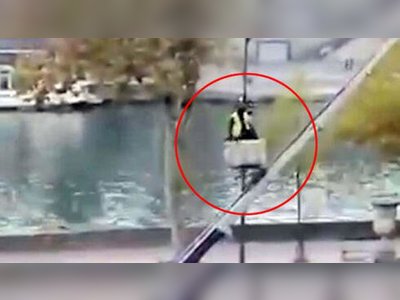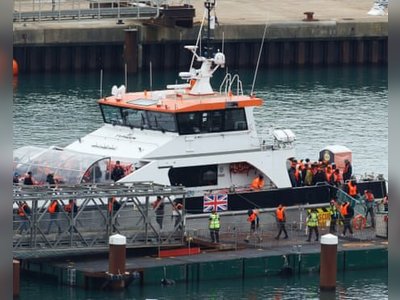Russia’s President Putin Declares Burevestnik Nuclear Cruise Missile Ready for Deployment
Vladimir Putin orders armed forces to prepare the 9M730 Burevestnik — dubbed ‘invincible’ — following a claimed successful test
Russian President Vladimir Putin announced on Sunday that the 9M730 Burevestnik nuclear-powered cruise missile has completed a successful test and is now moving into deployment preparation.
Dressed in military fatigues, he ordered Russia’s top general to begin infrastructure work and to “determine the possible uses” of the weapon for the armed forces.
According to the Russian General Staff, the test reportedly lasted around fifteen hours and covered some 8,700 miles, a distance capable of reaching cities such as New York or Washington D.C. NATO refers to the system by the codename “Skyfall”.
Putin described Burevestnik as an “invincible” missile, claiming it can evade all current and future missile-defence systems and has effectively unlimited range.
The announcement follows high-profile nuclear drills involving Russia’s strategic forces, with the Burevestnik now described as a key pillar of Moscow’s long-term weapons modernisation.
Ukrainian military intelligence and independent analysts have tracked heightened activity in the Arctic test area of Novaya Zemlya and flagged the missile’s potential diplomatic leverage in Russia’s negotiations with the West.
Despite Moscow’s declarations, the Burevestnik programme has a troubled record.
Of at least thirteen known test launches since its unveiling in 2018, only two were partially successful according to the Nuclear Threat Initiative, and an explosion during a 2019 trial reportedly killed five engineers and two service personnel.
Experts also continue to question whether the missile’s claimed operational specs — including unlimited range and immunity from interception — are credible.
With Putin moving to deploy the system, the West faces new strategic implications.
The United States and its allies have been briefed on the development.
The weapon—if fully fielded—would introduce a novel class of nuclear-powered, low-altitude cruise missile into the global arsenal, raising fresh questions about arms-control frameworks, deterrence stability and nuclear-risk escalation.
Dressed in military fatigues, he ordered Russia’s top general to begin infrastructure work and to “determine the possible uses” of the weapon for the armed forces.
According to the Russian General Staff, the test reportedly lasted around fifteen hours and covered some 8,700 miles, a distance capable of reaching cities such as New York or Washington D.C. NATO refers to the system by the codename “Skyfall”.
Putin described Burevestnik as an “invincible” missile, claiming it can evade all current and future missile-defence systems and has effectively unlimited range.
The announcement follows high-profile nuclear drills involving Russia’s strategic forces, with the Burevestnik now described as a key pillar of Moscow’s long-term weapons modernisation.
Ukrainian military intelligence and independent analysts have tracked heightened activity in the Arctic test area of Novaya Zemlya and flagged the missile’s potential diplomatic leverage in Russia’s negotiations with the West.
Despite Moscow’s declarations, the Burevestnik programme has a troubled record.
Of at least thirteen known test launches since its unveiling in 2018, only two were partially successful according to the Nuclear Threat Initiative, and an explosion during a 2019 trial reportedly killed five engineers and two service personnel.
Experts also continue to question whether the missile’s claimed operational specs — including unlimited range and immunity from interception — are credible.
With Putin moving to deploy the system, the West faces new strategic implications.
The United States and its allies have been briefed on the development.
The weapon—if fully fielded—would introduce a novel class of nuclear-powered, low-altitude cruise missile into the global arsenal, raising fresh questions about arms-control frameworks, deterrence stability and nuclear-risk escalation.










